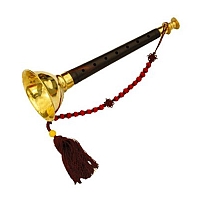garment samples from DPRK
| I've never meant to closely follow DPRK issues in this blog, but lately it seems to have become a habit, as there have been things worthy of interest lately, involving Finland and North Korea (the train fracas between NK diplomats and Finnish authorites and the subsequent NK complaint over the incident). Another much smaller recent issue is about a Finnish company L-Fashion Group having bought a garment sample from North Korea, which was briefly mentioned in a report Vaatteita etelästä (pdf, "clothes from the south"), which deals with the social and environmental responsibility of companies. The report was introduced in article by a monthly magazine Voima titled Luhta brändää Pohjois-Korean? ("Luhta branding North Korea?). Ordering samples from North Korea is cited by Voima as an example of companies' lack of social responsibility and disinterest towards human rights and working conditions. In it, the magazine is correct. An interesting thing is that it has taken some time for Voima to find out that DPRK is indeed a dictatorship which is, among other things, not welcoming towards factory inspections. Some five years ago, Voima published a DPRK travel report by a juche-enthusiastic Finnish communist (see Kominform maintained by him), in which nothing but praise towards the country was heaped. The original article by the visitor, back the available online, stated that the footage on starving North Korean children must have been manufactured in Hollywood; understandably, that passage had been edited from the published article, cannot tell if by the author or by Voima. In the same page the mag accused Kim Dae-jung of buying arms with his Nobel price money. Say what you will about KDJ's Nobel price, but back then this was Voima's attitude towards people who had risked their lives in struggle for democracy back then. This has left a particularly unwashable stain in the magazine's progressiveness. About the garment samples from North Korea, the representative of L-Fashion Group wouldn't answer to any questions on the possible subcontractors there. I have no idea about the state of garment industry in North Korea, and I have neither heard anything about sourcing in garment manufacturing, except for Kaesong... Categories at del.icio.us/hunjang: DPRK ∙ Korea-Finland ∙ media |




 Gossip, Markets, and Gender
Gossip, Markets, and Gender During those years, he was losing his contact with singing and music, but his playing of t'aepy'ôngso (see picture on the right) kept the music in him. In the early 90s he was awarded the first price for the instrument in a couple of competitions. He did not sing yet one stage but during gatherings after events (twip'uri), from which he gathered fame, and met pianist Im Tong-ch'ang, which really started his career as a singer.
During those years, he was losing his contact with singing and music, but his playing of t'aepy'ôngso (see picture on the right) kept the music in him. In the early 90s he was awarded the first price for the instrument in a couple of competitions. He did not sing yet one stage but during gatherings after events (twip'uri), from which he gathered fame, and met pianist Im Tong-ch'ang, which really started his career as a singer.  The title of this note, "sad fragrance of wild rose" comes from his perhaps most renown song Tchillekkot ("Wild rose"), in which he sings about crying all night long for the sadness of the wild rose fragrance. The Hankyoreh reporter asked what has been so sad about it. It had been after a difficult winter '92-93, when Jang had been without a proper job, just parking cars in a relative's car repair.
The title of this note, "sad fragrance of wild rose" comes from his perhaps most renown song Tchillekkot ("Wild rose"), in which he sings about crying all night long for the sadness of the wild rose fragrance. The Hankyoreh reporter asked what has been so sad about it. It had been after a difficult winter '92-93, when Jang had been without a proper job, just parking cars in a relative's car repair. 